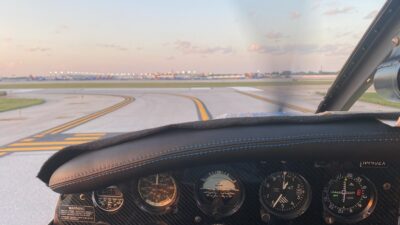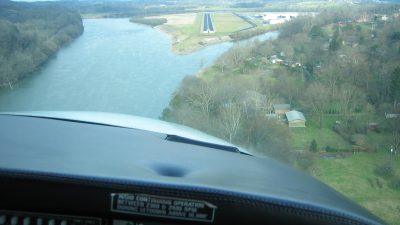If you’ve dreamed of flying for a living, you may have wondered, “Do I need a college degree to become an airline pilot?” The answer isn’t as straightforward as you might think. While a college degree can boost your career prospects, it’s not always required, and many pilots have reached the skies without one.
In this guide, we’ll break down the role of college degrees in an airline pilot’s career path and help you decide whether earning one fits your goals.
Airline Pilot Requirements: The Basics
Before we dive into degrees, let’s cover what’s non-negotiable:
What Every Pilot Needs
- Licenses and Certifications:
- Private Pilot License (PPL).
- Commercial Pilot License (CPL).
- Airline Transport Pilot Certificate (ATP).
- Flight Hours:
- A minimum of 1,500 hours is required for an ATP certificate in most cases.
- Medical Certification:
- A first- or second-class medical certificate to ensure physical and mental fitness.
What’s Optional (but Nice to Have)
- College Degree: While not mandatory for most regional airlines, some major carriers prefer it.
College Degrees and Major Airlines
So, why do some airlines favor degrees? It boils down to competition and hiring practices at major airlines like Delta, American, and United.
Here’s Why Degrees Matter to Some Airlines:
- Demonstrates Dedication: Completing a degree shows commitment and perseverance, traits airlines value.
- Enhances Critical Thinking: College education helps develop problem-solving skills that are useful in high-pressure scenarios.
- Makes You Stand Out: In a competitive hiring environment, a degree can give you the edge when candidates have similar flight hours.
Key Insight:
Not all airlines require a degree. However, having a degree might improve your chances if you aim to fly for a legacy carrier.
The Competitive Edge of a College Degree
Imagine this scenario:
- Two candidates apply for the same airline position. Both have 1,500+ hours, ATP certificates, and glowing references.
- One has a college degree, while the other doesn’t.
Who’s more likely to get hired?
In many cases, the degree holder gets the nod. Here’s why:
What Airlines Look for in Candidates:
- Well-Rounded Background: A degree can show that you bring diverse skills.
- Leadership Qualities: Especially if the degree includes teamwork-heavy or leadership-focused courses.
- Long-Term Growth Potential: Airlines may prefer candidates with academic qualifications to fill future leadership roles.
Tip: If college isn’t your thing, focus on standing out in other ways, like exceptional flight experience or specialized training.
Can You Succeed Without a Degree?
The short answer: Absolutely! Many pilots have successful careers without setting foot in a college classroom.
Here’s How to Build a Career Without a Degree:
- Start with Regional Airlines:
- Most regional carriers prioritize flight hours and certifications over degrees.
- Gain Experience Through Flight Instructing:
- Build hours while sharing your knowledge with future pilots.
- Consider Cargo or Charter Flying:
- These sectors often have fewer degree requirements and provide excellent experience.
Success Stories:
- Pilots like Southwest Airlines’ Capt. Tammie Jo Shults and other industry veterans have reached the top without a degree by excelling in other areas.
Weighing the Costs and Benefits of College
For many aspiring pilots, pursuing college boils down to money and time. Here’s how to assess whether it’s worth it for you:
Pros of a College Degree:
- Better Hiring Prospects: Gives you an edge at major airlines.
- Career Flexibility: A degree can be a safety net if your aviation career shifts or stalls.
- Networking Opportunities: Aviation colleges often have connections with airlines.
Cons of a College Degree:
- High Costs: Tuition can range from $20,000 to $100,000+.
- Time Commitment: Balancing college and flight training can be challenging.
- Delayed Entry into the Workforce: Going straight into flight training gets you cockpit-ready faster.
Pro Tip: If the cost of college is a concern, explore scholarships, financial aid, or schools offering combined degree and flight training programs.
Alternatives to College
If you’re not sold on the college route, there are plenty of alternatives:
1. Military Aviation
- Get unparalleled training, flight hours, and experience.
- Many military pilots transition into commercial aviation later.
2. Accelerated Flight Schools
- Programs like ATP Flight School offer fast-tracked paths to earning licenses and building hours.
3. Ab Initio Programs
- Airline-sponsored training programs that take you from zero experience to airline-ready.
- Examples: Cadet programs from airlines like JetBlue or European carriers.
Combining College and Flight Training
For those who want the best of both worlds, some programs offer integrated paths to a degree and pilot certification.
Top Aviation Colleges:
- Embry-Riddle Aeronautical University
- Purdue University
- University of North Dakota
These schools offer:
- Degree programs combined with flight training.
- Networking opportunities with industry leaders.
Tips for Managing Both College and Flight Training:
- Plan Your Schedule Carefully: Prioritize courses and flights to avoid burnout.
- Use Summers Wisely: Build flight hours when school is out.
- Join Aviation Clubs: Networking and mentorship opportunities.
Is College Right for You?
Not sure if college is the right path? Ask yourself these questions:
- What Are My Career Goals?
- If flying for a major airline is your dream, a degree could help.
- What’s My Budget?
- Can you afford tuition, or would direct flight training be more cost-effective?
- Do I Enjoy Academic Learning?
- If you love studying, a degree could enrich your aviation knowledge.
Key Insight: There’s no one-size-fits-all answer. Your career path is unique; what works for others may not work for you.
Your Next Steps
Wherever you are on your journey, there are clear steps to get you closer to the cockpit:
No Degree? Start Here:
- Enroll in a Reputable Flight School: Build your certifications and hours.
- Gain Experience: Work as a flight instructor, bush pilot, or in charter operations.
- Network: Connect with pilots and recruiters through events and social media.
Considering College? Here’s What to Do:
- Research Aviation Programs: Look for schools with strong flight training offerings.
- Compare Costs: Find programs that align with your financial situation.
- Apply for Scholarships: Take advantage of financial aid specific to aspiring pilots.
The Sky’s the Limit
So, do you need a college degree to become an airline pilot? Not necessarily. However, having one can open doors, especially at major airlines.
The key is to weigh your goals, resources, and timeline:
- If you want to start flying ASAP, focus on building hours and certifications.
- A degree could be a valuable investment if you’re aiming for long-term career growth.
Whatever path you choose, your dedication and passion for flying will determine your success.
Ready to get started? Explore flight schools or aviation programs today and take the first step toward your dream career in the skies!



